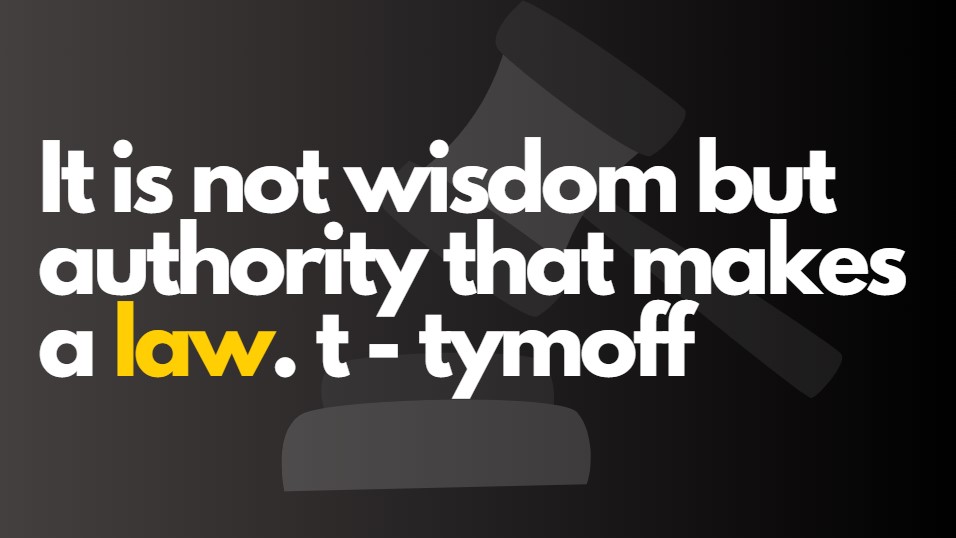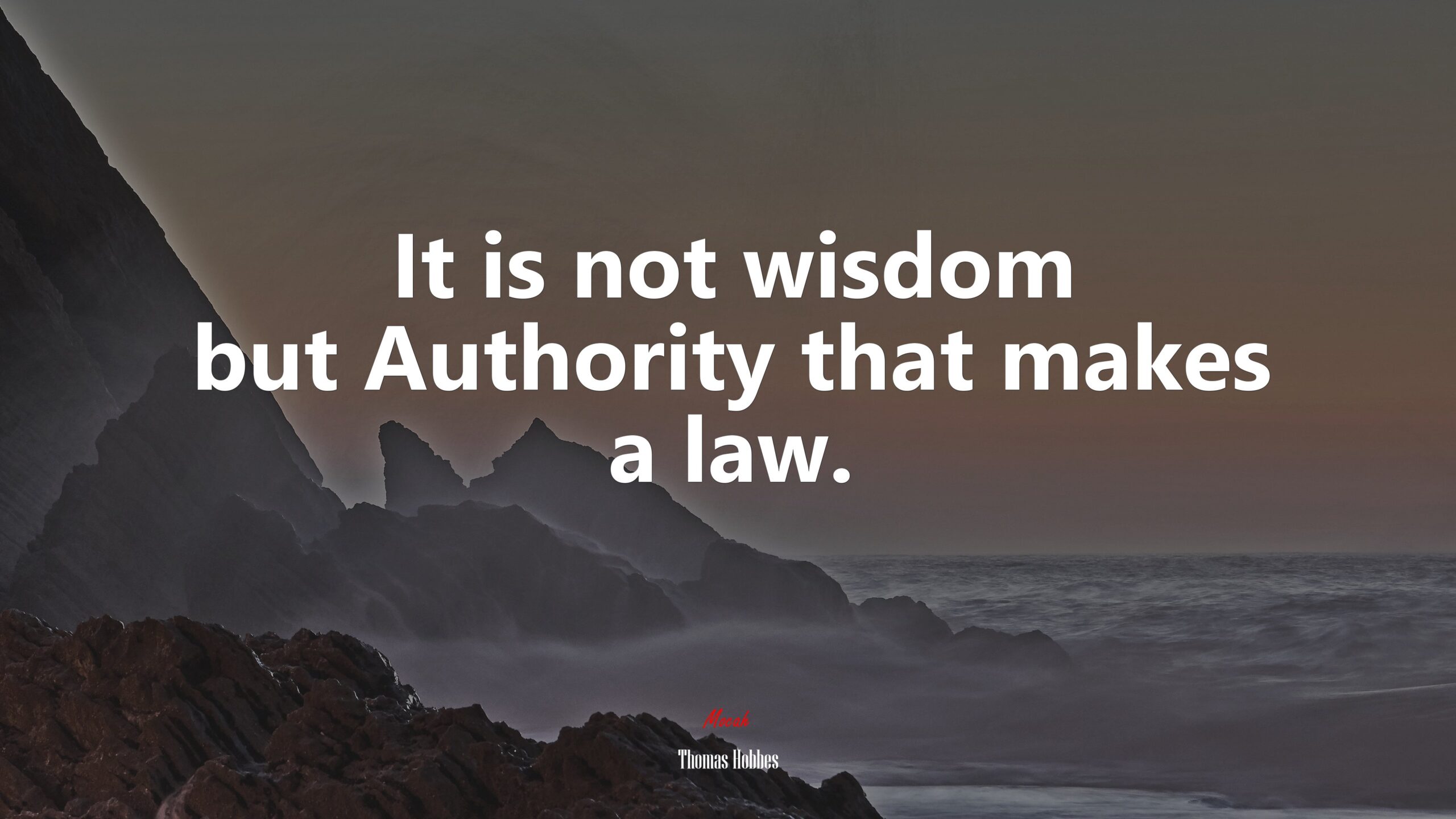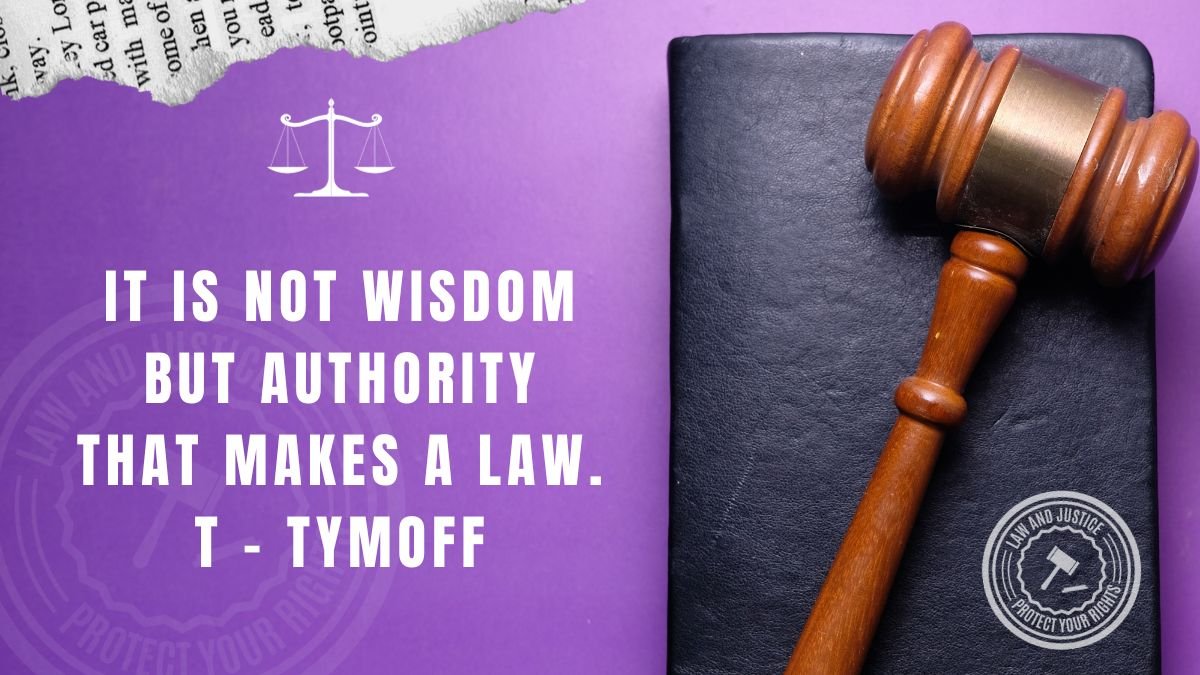Introduction:
In the intricate tapestry of governance, the relationship between wisdom and authority in the creation of laws has been a subject of perennial debate. Tymoff’s assertion, “It is not wisdom but authority that makes a law,” challenges conventional notions that deem wisdom as the primary driving force behind legislation. This provocative statement opens a Pandora’s box of inquiries into the dynamics of lawmaking, prompting us to scrutinize the roles of knowledge, experience, and power in the legal realm.

The Dynamics of Wisdom and Authority:
To comprehend Tymoff’s perspective, it is imperative to dissect the elements of wisdom and authority and their interplay in the legislative process. Wisdom, often associated with sagacity, insight, and a profound understanding of societal needs, seems to be the logical foundation for the creation of just and equitable laws. However, authority, rooted in power and the ability to enforce decisions, emerges as a formidable contender in the realm of lawmaking.
must read=it is not wisdom but authority that makes a law. t – tymoff
Wisdom in Law:
Wisdom, as applied to law, embodies the idea that legislation should be a product of thoughtful consideration, ethical principles, and a genuine understanding of the human condition. Advocates of this viewpoint argue that laws crafted with wisdom are more likely to stand the test of time, adapting to the evolving needs of society while upholding justice and fairness. Wisdom, in this context, emanates from the collective knowledge and experiences of those entrusted with the responsibility of legislating.

Authority as a Driving Force:
Contrary to the belief in the supremacy of wisdom, Tymoff’s assertion implies that authority, often concentrated in the hands of a select few, holds the true power to shape laws. This perspective underscores the practical aspect of legislation—laws are not merely intellectual exercises but instruments of control and order. Authority, whether vested in a government, legislative body, or a ruler, becomes the catalyst that transforms intentions into actionable legal frameworks.
Historical Perspectives:
A historical exploration of legal systems reveals instances where authority has played a pivotal role in shaping laws. Monarchies and autocracies, for instance, often relied on the sovereign’s authority to enact laws, irrespective of their intrinsic wisdom. In such systems, laws were not always a reflection of the collective wisdom of the governed but rather a manifestation of the ruler’s will.
Conversely, democracies, while aiming to incorporate the wisdom of the masses through representation, still grapple with the challenge of balancing wisdom and authority. Elected officials, wielding the authority bestowed upon them by the electorate, must navigate complex issues with a discerning eye for both the immediate needs of society and the broader implications of legislation.
Contemporary Examples:
In the contemporary landscape, the tension between wisdom and authority continues to shape legislative agendas. The rise of populist movements, characterized by charismatic leaders wielding authoritative power, has challenged traditional notions of legislative wisdom. The decisions made under such leadership often prioritize immediate concerns and political expediency over the nuanced wisdom required for enduring legal frameworks.

Moreover, the influence of special interest groups and corporate entities in shaping legislation highlights the role of authority in the modern legislative process. Laws, at times, are perceived as products of lobbying power and economic influence rather than the result of a judicious examination of societal needs.
Conclusion:
Tymoff’s assertion invites us to reconsider our preconceptions about the forces that drive the creation of laws. While wisdom undoubtedly holds intrinsic value in crafting just and enduring legislation, the practical realities of governance often place authority at the forefront of the legislative process. Striking a delicate balance between these two forces is the crux of effective lawmaking—laws that are not only wise in their conception but also authoritative in their implementation. As we navigate the complex landscape of legal systems, the synthesis of wisdom and authority becomes imperative for the creation of laws that truly serve the welfare of society.




